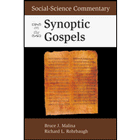It is sometimes taught in Christian circles that when we stand before the judgment seat of Christ, God will replay all of our sins and mistakes before the entire mass of other Christians who are there as well.
I have heard the judgment seat of Christ described as though there will be a big movie screen and as we are all gathered together on judgment day, God will show a movie of all our sins, mistakes, and failures for everybody to see.
Have you ever heard something like this taught about the judgment seat of Christ?
I was reminded of this idea recently when I saw this picture:

This guy cheats on his girlfriend, and so to teach him not to do this anymore, she makes him stand at the mall wearing this sign. He shouldn’t have done what he did, but at the same time, I am not sure that this is going to get him to love his girlfriend more…
Some people view God this way. We sin. He gets angry. So He tries to punish and shame us into obedience. Ultimately, when we all get to heaven, the first thing we have waiting for us is the worlds longest horror movie ever of everything bad we have ever said, done, or thought. Not every sin is sexual, but the sexual sins alone would make a XXX-Rated movie millions of hours long. Then you have all the violence, murders, anger, slander, gossip, greed, hate, jealousy, etc., etc., etc.
I cannot imagine a worse way to start eternity….
We Must All Appear Before the Judgment Seat of Christ
I suppose the idea is that since none of us want our deepest secrets and darkest sins revealed to the whole world, this sort of idea is to keep us from committing sins. There are even a few verses which seem to back up this idea. For example, 2 Corinthians 5:10 says that we will all appear before the judgment seat of Christ to give an answer for the things done in the body, whether good or evil.
So the teaching is that at the judgment seat of Christ, Jesus is going to call us one by one before His throne and replay our life for us, pointing out in excruciating detail all the things we did–both good and bad–during our life. And since everyone else is going to be there too, well, they are going to overhear what Jesus says or be able to watch the movie of our life along with us.
Again…. this is NOT a good way to start eternity…




 Typically the Parable of the Talents in Matthew 25:14-30 or Luke 19:11-27 is thought to teach that we must use what God has given us in ways that will multiply these gifts for God, and therefore, grant us eternal reward from Him in heaven.
Typically the Parable of the Talents in Matthew 25:14-30 or Luke 19:11-27 is thought to teach that we must use what God has given us in ways that will multiply these gifts for God, and therefore, grant us eternal reward from Him in heaven.

